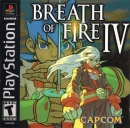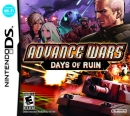View on YouTube
Kids are playing more video games than ever these days. At least according to data from the US Department of Education. That might be cause for some to worry about the intellectual future of the next generation, but Erik Martin disagrees.
Martin is in charge of the Department of Education's Games for Learning program, which will hold a conference to discuss the future of video games and schooling. Speaking to Polygon, he said, "If you look at the life of a student a lot of [them] play on average about 10,000 hours of video games by the time they are graduating high school. That is almost the same amount of time they are spending in schools. You can imagine a lot of the time which of the two activities they might feel more engaged in or more relevant."
Right now, educational games have some hefty stereotypes associated with them. By bringing educators, researchers, students, and game makers together, Martin thinks that can change.
"If you can take that experience of getting outside of school and make it feel just as relevant and just as compelling when they're in school learning stuff and doing stuff and doing something that's interesting and educational, that's the bridging we want to provide."
"This is not about looking at games because they are cool or they are fun, they're a real educational solution."
One of gaming's largest publishers, Ubisoft, will be attending the conference and presenting about games like Assassin's Creed which relies on a high degree of historical accuracy. "Over the years we've heard of universities across US using the games to engage students," Ubisoft Public relations director Michael Beadle told Polygon. "[They] compare the in-game history with the history they learned in class to show students what these periods of history look like visually."
Ubisoft consults with historians and linguists to ensure accuracy for many of their characters and groups, including the Kanien'kesga:ka (Mohawk) nation from Assassin's Creed III as Forbes explains in this article. "History is a core component of the Assassins' Creed franchise," Beadle said, "and one that we know has taught millions of players over the years about key characters and historical events by experiencing pivotal moments in history."
Games for Learning is just the most recent initiative to push for integrating video games into schools. Almost three years ago, we reported on a special version of Minecraft that had been adapted to help teachers present historical, scientific, and other lessons to children. Martin believes that using specialized games to make learning more entertaining and engaging are the keys to the future of education. "This is not about looking at games because they are cool or they are fun, they're a real educational solution."
http://www.gamespot.com/articles/department-of-education-believes-video-games-are-t/1100-6426600/




















































